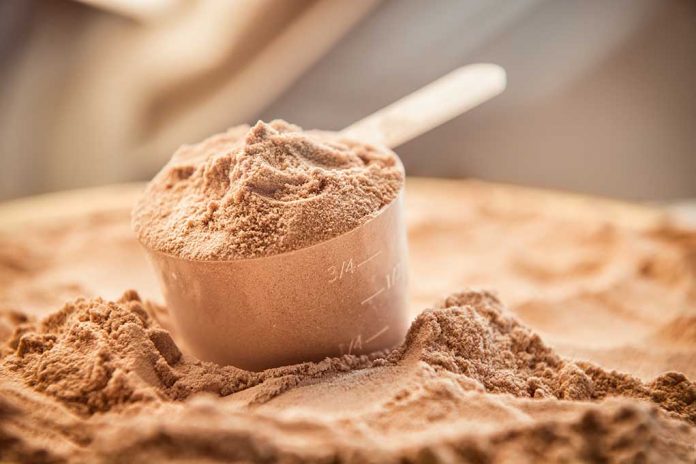
[DANGER] Common Supplement’s Hidden Health Risks
(AscendHealthy.com) – Many people who have been doing everything they know to improve their health could be putting themselves at risk each day. It’s frightening to think a product we might buy to make us look and feel better might be doing the exact opposite, but we take that risk any time we consume any type of over-the-counter (OTC) supplement.
The safety of using protein powder supplements recently fell into question after dozens of products were found to contain high levels of multiple heavy metals. Here’s what every consumer needs to know.
Discovering a Dangerous Trend
Consumer Reports recently did an independent study that focused on the potential contaminants in various commercial protein powders. The company bought 15 different brands available either online or in the vicinity of metropolitan New York and tested each for arsenic, cadmium, lead and mercury.
Among the most concerning products:
- EAS Myoplex Original Rich Dark Chocolate Shake tested at an average of 16.9 micrograms of arsenic and 5.1 micrograms of cadmium per three-daily recommended servings. USP’s arsenic limits are 15 micrograms; their limit on cadmium is 5 micrograms.
- Muscle Milk chocolate powders averaged less arsenic, at 12.2 micrograms per daily serving, but they contained 5.6 micrograms of cadmium, slightly over the USP limit. They also included 13.5 micrograms of lead, 3.5 micrograms over the 10-microgram daily limit.
- Muscle Milk liquid nutritional supplement contained 14.3 grams of arsenic per recommended daily dose.
Pure Market tested products independently, and it failed 32 products for issues in purity and nutrition value. Their lab results offer a startling range of quality differences. For example:
- Garden of Life Organic Plant Formula Raw Protein Powder – Chocolate rated poorly in heavy metal content.
- Jarrow Formulas Whey Protein Powder – Unflavored fared well in the heavy metal department, but it contained high levels of toxic plasticizers (likely from packaging) and had a much lower nutritional value than similar products.
- Optimum Nutrition Gold Standard 100% Casein Protein Powder – Chocolate Supreme is relatively low in nutrition value but high in heavy metals and plasticizers.
These findings highlight the importance of thoroughly researching supplements and their suppliers before giving them a try.
Other Dangers of Protein Supplement Use
People who supplement their protein intake may not consider how much they’re already getting from their diets. Too much protein can be just as dangerous as not getting enough, leading to the risk of kidney damage, osteoporosis, heart disease, digestive issues and dehydration. Anyone considering adding a supplement should talk to their doctor first to make sure it’s the right choice.
Healthier Alternatives
We can get protein from various sources, and except for those of us who are high-intensity athletes or directed by our healthcare providers, we don’t need any supplements. Most of us only need about 10% of our daily caloric intake to be protein, so meeting our daily needs isn’t hard. In fact, most people in the United States get well above the daily requirement without even trying.
Eat small servings of red meats, poultry, eggs and dairy products daily for protein sources that aren’t likely to add to your daily heavy metal limit. Vegetarians might find it a bit more challenging; many plant-based protein sources will contain at least small amounts of heavy metals. Legumes, canned corn, bread, noodles and some cereals are cleaner choices.
Protein powders are expensive, and most of us don’t even need them. All in all, supplements send about 23,000 people to the hospital each year. Our bodies are equipped to glean everything they need from our diets; as long as we provide the right foods, no supplements are usually necessary. Before starting any new supplement, be sure to talk to a healthcare provider.
~Here’s to Your Healthy Ascension
Copyright 2023, AscendHealthy.com




















